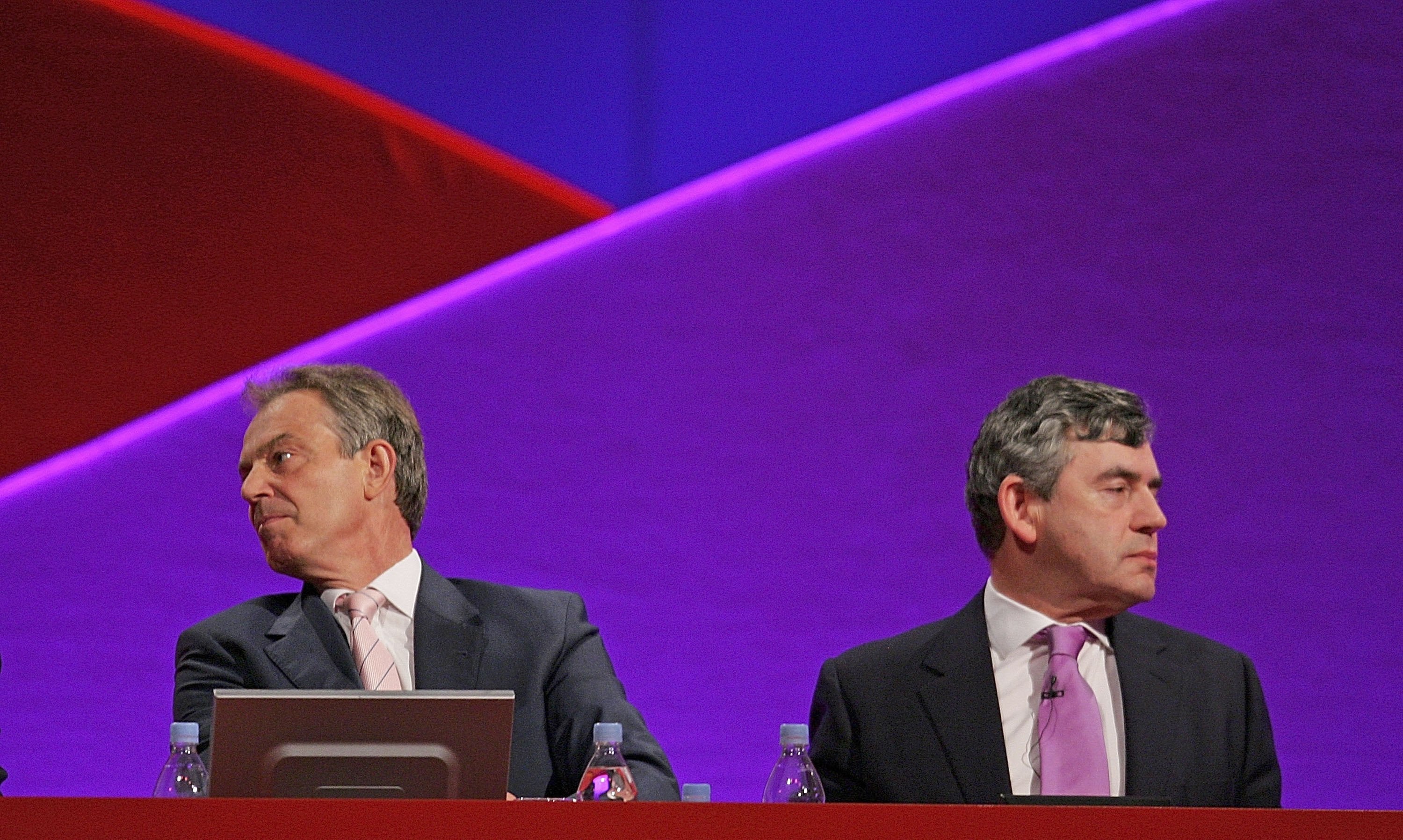Does it matter if the prime minister and the chancellor don’t get on?
Amid rumours Boris Johnson threatened to demote Rishi Sunak, Sean O’Grady considers the relationships between some of the previous incumbents of No 10 and No 11


A ccording to a source close to the chancellor of the exchequer, if Boris Johnson “demotes him, he’s only signing his death warrant. There’s nobody else as good as Rishi”. It sounds hubristic because, after all, no politician is indispensable, no chancellor is 100 per cent immune from sacking, and while Rishi Sunak does the job well (within the peculiar bounds of this Brexity, populist government) his popularity ratings among the party activists lag behind their current darling, Liz Truss, who seems a much more willing warrior in the culture war and is who Johnson fancies for the Treasury. So Sunak may be pushing his luck and irritating the prime minister, who likes to get his own way, even with the forces of logic. Johnson has already, effectively, sacked one chancellor for having the temerity to stand up to him (Sajid Javid); but that was during the warm honeymoon of his 2019 general election triumph, and while he may not be strong enough now, you couldn’t rule out gambler Johnson pushing his luck too.
Prime ministers occasionally like to remind their chancellors and indeed the press and public of the words on the highly polished brass letterbox at 10 Downing Street: “First Lord of the Treasury”. An ancient and archaic title, nonetheless it conveys the very contemporary political truth that, in a quasi-presidential political sustenance such as the UK, it is the prime minister as party leader who wins elections, and sets the direction and tone of their government. Premiers often owe their success to the brilliant tax-cutting budgets and wise stewardship of the nation’s finances by the man in No 11 (no woman yet, though it may not be long), but politics is a thankless task.
In fact, the hard graft and unpopularity of a term or two at the Treasury can hamper an otherwise meteoric career, especially for a Labour chancellor tasked with cutting spending and raising taxes (Roy Jenkins and Denis Healey certainly paid a political price for the long hard slog they had to put the country through).
Rishi Sunak, by contrast, found himself in the odd position during the Covid crisis of having to wreck the public finances, cut taxes and boost spending and borrowing, just to avoid a Covid-induced depression. He enjoys high ratings as a result, but that might not survive a period of retrenchment. The idea of a second round of Tory “austerity” – a word Johnson recoils from – wouldn’t do Johnson’s chances of re-election much good either, and those are what matters to the prime minister. Hence the tensions between the two men, as well as distinct differences in style and temperament.
Does it matter if the Downing Street neighbours don’t get on? It does depend. The increasingly fractious relationship between Tony Blair and Gordon Brown grew so bad that towards the end they were barely on speaking terms. After the 2001 election Blair considered firing his chancellor, even though he told the Labour conference he was the most successful in 100 years. Like Johnson with Sunak, perhaps, the political consequences of such an act were too awful for him to consider, so he left his awkward colleague be. A few years later it was Brown who was almost openly plotting to force Blair out, and it worked.

The psycho-drama was entertaining, but in policy terms the Blair-Brown partnership was highly effective, at least until the banking crisis swamped everything. Arguably they mostly agreed and got the big things right – Independence for the Bank of England, no nationalisations, few tax hikes, staying out of the euro, but staying in the EU with no referendums, social security reform, the minimum wage and so on. To some degree the same might be said of Margaret Thatcher and her chancellors, with whom she often personally clashed – Geoffrey Howe (because he bored her), Nigel Lawson (because he irritated her and she him) and John Major (who she thought was “one of us”, but forced her into the European Exchange Rate Mechanism). Overall, these bickering pairings produced solid economic achievements, not least the taming of endemic inflation, albeit with much unnecessary social distress. History suggests that weak chancellors who merely sign the cheques for their free-spending bosses next door end up delivering economic catastrophes, the most dismal example being Tony Barber’s now-forgotten time carrying out Ted Heath’s ill-starred commands. You should suspect, and fear, Liz Truss being appointed by Johnson with exactly the same remit – to do as she’s told, pretend that you can have your cake and eat it, and to spin the unspinnable on television.
By contrast, the much more chummy pairings of, say, Jim Callaghan and Denis Healey, John Major and Ken Clarke and David Cameron and George Osborne generated few headlines about bitter rivalries, but wound up as failures either from the political point of view (ie badly losing subsequent elections), or weakening the economy, or both.
The ideal, then, of an independent-minded, high-powered and collegiate couple at the top of government with a shared vision and a successful economic policy is rarely enjoyed. You have to delve a long way back to glimpse it – the earliest phase of the Thatcher government with Howe, probably. Johnson, in truth, seems to have developed no real lasting rapport with any of his cabinet. He keeps his distance even from former Leave allies such as Michael Gove (with good reason) and Priti Patel. On past experience and present gossip, it seems unlikely that the Johnson administration will witness a happy and successful double act developing in Downing Street.

Join our commenting forum
Join thought-provoking conversations, follow other Independent readers and see their replies
Comments